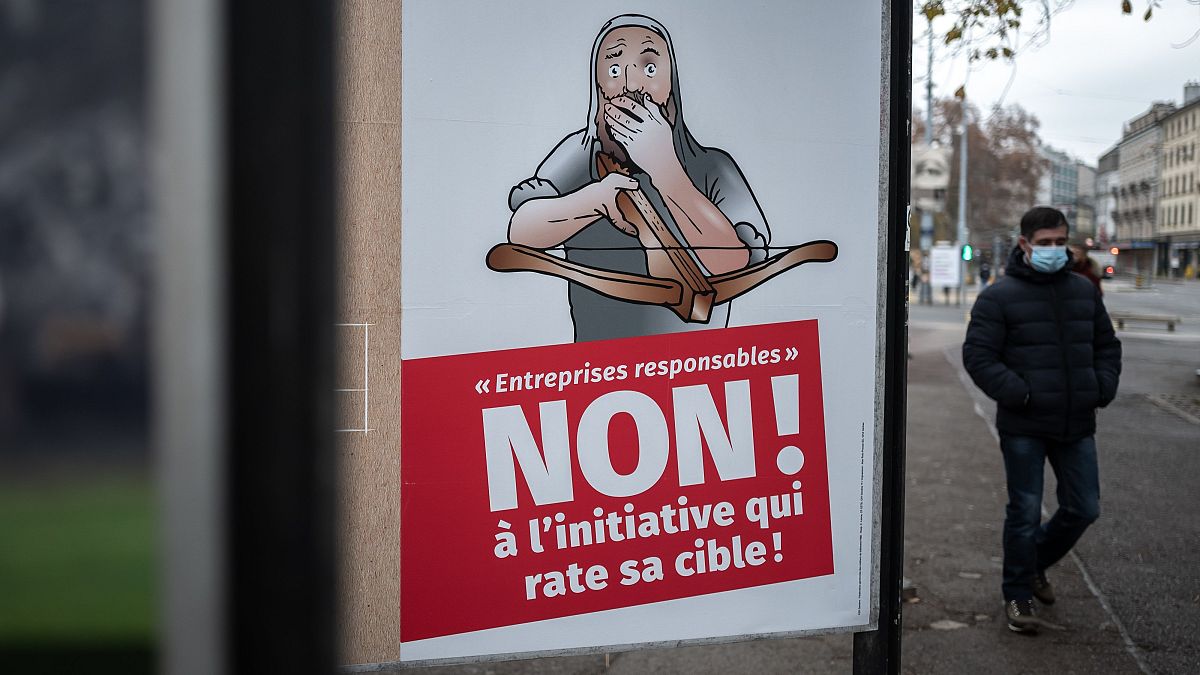Switzerland has rejected measures that would have stiffened penalties against Swiss companies that violate human rights or harm the environment.
Swiss voters rejected measures that would have stiffened penalties against Swiss companies that violate human rights or harm the environment in a referendum on Sunday.
The ballot also included a vote on banning the financing of weapons for exports, a measure which was also rejected by the public.
According to polling company gfs.bern, both measures were rejected, adding there was a turnout of 46 per cent.
The Swiss government opposed the initiative, which was titled "Responsible companies — to protect people and the environment", and was championed by progressive groups and some civil society organisations.
The federal government argued the measure would weaken Switzerland’s economic competitiveness.
Organizations like Amnesty International, Greenpeace and the Swiss watchdog group Public Eye backed the proposal.
The measure would have made large Switzerland-based companies liable in the country's courts for their flawed operations or those of their subsidiaries and subcontractors in foreign nations, unless they were able to show that they conducted proper due diligence beforehand.
It would require companies based in the country to better verify their activities in foreign countries and could see them held responsible for any damage caused.
Had it passed, the measure would have potentially affected multinationals like mining and minerals giant Glencore, agribusiness company Syngenta, and cement powerhouse LafargeHolcim — which have at times faced criticism over their activities abroad.
Parliament has proposed a countermeasure that would also boost scrutiny of such companies’ actions.
This alternative, which was set to take into effect if the proposal in the referendum was defeated, will not require companies to answer to Swiss courts, and focuses on issues like mining of minerals drawn from conflict zones or using child labour.
Under Switzerland's system of direct democracy, which gives voters a direct say several times each year on a variety of issues, proposals need to win both a majority of votes cast and of cantons to pass.
The vote, mainly conducted using postal ballots, was originally scheduled for May, but was delayed due to the coronavirus pandemic.
Another measure considered would have banned the financing of any weapons destined for export, from handguns to assault rifles as well as tanks, but this was rejected in the polls.
